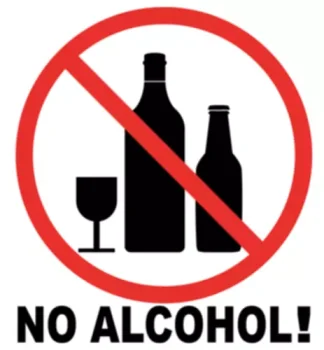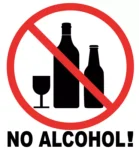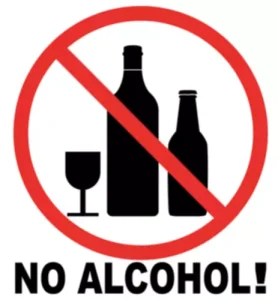Relapse Prevention Plan: Navigating Crisis

Discover when it’s time to seek mental health treatment and how to navigate the journey confidently. Regular interactions with a support network can help prevent isolation, which is a significant relapse risk factor. Open communication about struggles and emotions fosters an environment of trust and connection. Treatment plans should be tailored to the patients individual needs and preferences, and take into consideration availability of different treatment modalities (e.g., residential versus outpatient treatment). Smooth and gradual transition from a higher to lower level of care can additionally facilitate recovery, as it gives the patient time to adapt.
Relapse Prevention in other areas
Our state-specific resource guides offer a comprehensive https://ecosoberhouse.com/ overview of drug and alcohol addiction treatment options available in your area. Just as there are numerous views on human nature and multipletherapy models, there are different views on relapse prevention. Relapse prevention plans can include ways in which you hope to amend the damage addiction caused in your life. Regardless, it is important to consider the following items when creating a relapse prevention plan. The most important rule of recovery is that a person does not achieve recovery by just not using. Recovery involves creating a new life in which it is easier to not use.
- A robust support network is crucial for individuals recovering from substance use disorders.
- Recognizing these signs early allows individuals to implement coping strategies such as contacting support members or seeking therapeutic assistance, thereby preventing relapse before it escalates.
- Some researchers have differentiated a “lapse” (an initial use of the substance) from a “relapse” (uncontrolled use of the substance).
- The general answer is that honesty is always preferable, except where it may harm others 14,21.
- However, this does not mean that a person cannot recover from SUD or AUD.
Understand personal triggers

Professional treatment can relapse prevention help manage both the psychological and physical factors of addiction to promote recovery. To these ends, comprehensive substance use treatment programs often include both therapeutic and pharmacological methods to promote and sustain recovery while working to minimize relapse and manage use triggers. It involves taking the time to tend to your mental and physical health, such as getting enough sleep, eating healthy food, and exercising regularly. Relapse prevention focuses on building the awareness necessary to recognize the early stages of relapse. It also provides the skills to change your behavior and avoid misusing substances again.

What Are The Most Common Relapse Triggers?

Imagine what will happen in the short and long-term future if you decide to drink or use. Think of the consequences that would occur if you used vs. if you did not use. This can help with your decision making and reduce the risk of relapse. Withdrawal symptoms like nausea, shakiness, and sweating can be so difficult that you want to use drugs again just to stop them.
- In a subsequent meta-analysis by Irwin, twenty-six published and unpublished studies representing a sample of 9,504 participants were included.
- Such networks provide encouragement, accountability, and understanding, making it easier to navigate challenging moments.
- Discover five tips to support a loved one in recovery and empower their journey to healing and resilience.
- One such neurotransmitter, dopamine, reinforces the connection between drug use, pleasure, and any external triggers that remind the user of the substance.
- Positive coping skills include attending support groups, exercising, journaling, and eating healthy foods to minimize intense cravings.
Unlike acute withdrawal, which has mostly physical symptoms, post-acute withdrawal syndrome (PAWS) has mostly psychological and emotional symptoms. Its symptoms also tend to be similar for most addictions, unlike acute withdrawal, which tends to have specific symptoms for each addiction 1. The transition between emotional and mental relapse is not arbitrary, but the natural consequence of prolonged, poor self-care. When individuals exhibit poor self-care and live in emotional relapse long enough, eventually they start to feel uncomfortable in their own skin. As their tension builds, they start to think about using just to escape.

Relapse Prevention Plan: Techniques to Help You Stay on Track
- Open communication about struggles and emotions fosters an environment of trust and connection.
- Someone may find it useful to imagine how their life will be without using drugs or alcohol.
- Nurses are well placed to serve a key role in teams seeking to help individuals in recovery avoid relapses.
- They must confront the damage caused by addiction to their relationships, employment, finances, and self-esteem.
- Researchers and practitioners have identified multiple steps which help to explain the progression of many individuals through the process of recovery.
Therefore, a return to drug or alcohol use may seem like a good way to get back to feeling OK, curbing withdrawal symptoms, and combating strong cravings. Your doctor or an addiction treatment center has treatments to control withdrawal symptoms. A therapist or counselor can teach you coping Drug rehabilitation skills to deal with the negative thoughts or cravings that may be driving you to use again.
- This way, you can ensure that someone will be there to remind you of the benefits of sobriety and provide support.
- That way, you can explore new behaviors and thought patterns to help you stay clean.
- Helping clients develop positive addictions or substitute indulgences (e.g. jogging, meditation, relaxation, exercise, hobbies, or creative tasks) also help to balance their lifestyle6.
- All of these changes are crucial for a successful maintenance of recovery and reengaging in life without the use of substances.
- Some relapses start with lapses that become more prolonged or frequent until the individual returns to uncontrolled substance use.
- Remember, reaching out for help and support is vital if you ever feel overwhelmed or struggling.


Tuliskan Komentar